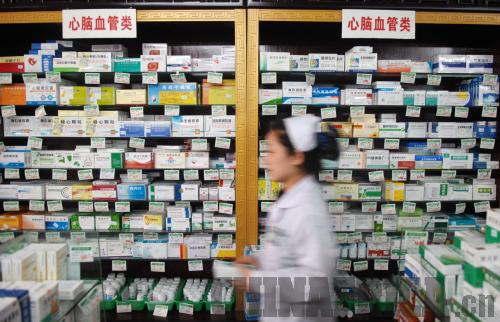|

Though the old adage goes "an apple a day keeps the doctor away," it seems that today, people forgo apples and instead turn to antibiotics to stave off illness. Unfortunately, using antibiotics improperly has an adverse effect and can be harmful to users' health, but that has not stopped people all around the world from carelessly popping pills. Antibiotic abuse is still a major problem in the West, but it is an even greater problem in developing nations in Africa and Asia, and especially in China.
Abusing of antibiotics leads to antibiotic-resistant restrains of bacteria that cannot be killed by antibiotic medicine. Resistance is caused by the misuse and overuse of antibiotics, and develops after the bacterium mutates or acquires a resistant gene. This means that some bacterial diseases no longer respond to conventional or widely available antibiotics, and illnesses that were previously seen as minor become much more dangerous and difficult to cure. When many people in a community misuse antibiotics, the conditions become favorable for bacteria to become resistant to medicine. As more bacterial strains become resistant to common antibiotics, the options for treating bacteria-related illnesses become fewer. In March of 2012, Margaret Chan, Director General of the World Health Organization (WHO), said at a conference in Denmark that the world is in danger of entering a post-antibiotic era. "A post-antibiotic era means, in effect, an end to modern medicine as we know it," she said. "Things as common as strep throat or a child's scratched knee could once again kill."
The severe consequences of antibiotic resistance are evident in many countries in Africa, where antimalarial drug resistance is a serious problem. The antimalarial drugs chloroquine and sulfadoxine-pyrimethamine were commonly used to treat malaria in the past, but are now largely ineffective because of antimicrobial resistance. In much of Africa, antimalarial medicines are widely available and may be counterfeited, substandard or packaged in the wrong doses. This kind of misuse leads to antimicrobial resistance. Chan said looking for new antibiotics is not the most promising solution, either. "In terms of new replacement antibiotics, the pipeline is virtually dry," she said. "The pharmaceutical industry lacks incentives to bring new antimicrobials to market for many reasons, some of which fall on the shoulders of the medical and public health professions. Namely, our inability to combat the gross misuse of these medicines."
Short on time and money, doctors are tempted to simply prescribe antibiotics to patients in order to treat many patients quickly - moreover, many patients wrongly believe that if they do not receive pills, they are not receiving proper treatment. This is especially a problem in China, where the Ministry of Health revealed last year that each Chinese person receives an average of 138g of antibiotics each year - this is 10 times the amount the average American consumes. This makes China particularly susceptible to antibiotic resistance. "Prescription drug abuse is quite serious in China, and the WHO has warned China several times about this," said Mao Qun'an, Spokesman of the Ministry of Health. "If we do not solve the problem of antibiotic abuse, it will be a disaster for China and may lead to a catastrophe for the human race. If antibiotic abuse leads to antibiotic resistance, people may find they have no drugs to combat an epidemic." The Chinese Government has adopted a series of measures to curb antibiotic abuse by tightening regulations on antibiotic drugs and cracking down on doctors who overprescribe antibiotics.
"Super bacteria" - highly resistant bacteria - have already made their mark on the world. Each year, there are about 440,000 cases of drug-resistant tuberculosis around the world, causing at least 150,000 deaths. The WHO is pressuring governments around the world to play their part in raising awareness about proper antibiotic use and combating antimicrobial resistance. |